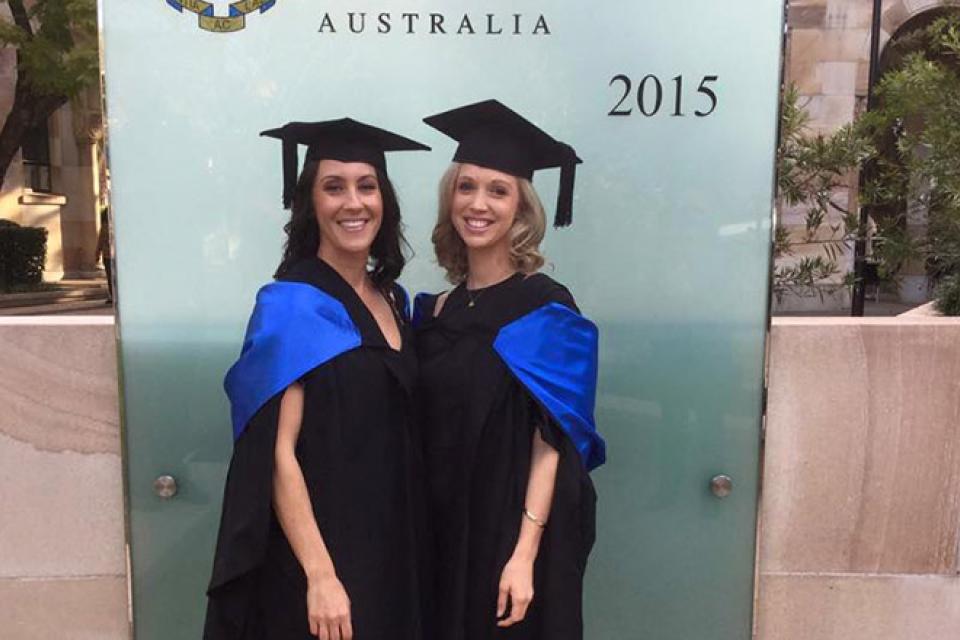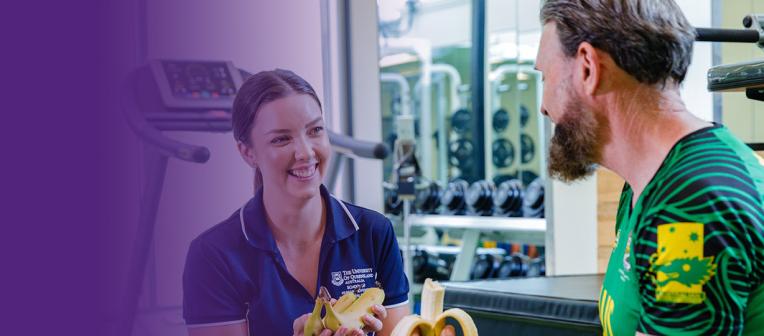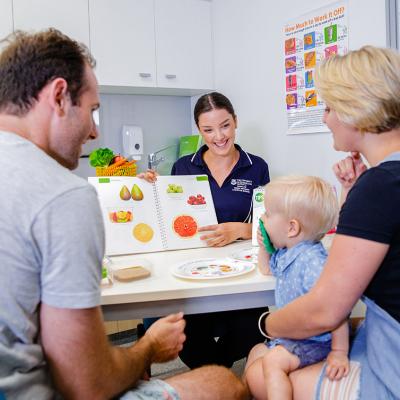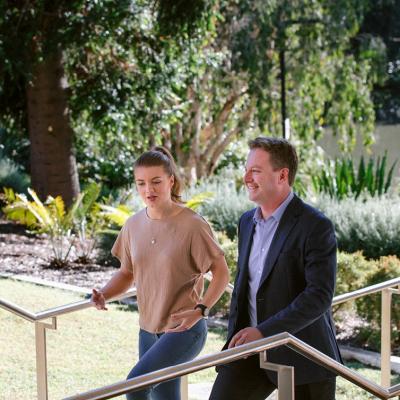The career of a dietitian can be extremely varied in the work you might be faced with, but this is only one of the many aspects of the role.
Work-life balance, career progression opportunities and an average salary of $95k in Australia all contribute to a high level of career satisfaction experienced by dietitians.
Megan Bray, an accredited practising dietitian and current PhD student, studied both the Bachelor of Exercise and Nutrition Sciences (now the Bachelor of Human Movement and Nutrition Sciences) and the Master of Dietetics Studies at UQ. Below, Megan shares how she decided that a career in dietetics was for her and reflects on how her study at UQ contributed to and continues to shape her practice today.
What has your career looked like up until now?
Since graduating, I have worked primarily in private practice as an accredited practising dietitian. My special interest is nutrition for eating disorders and mental health. Although I began my career as a solo private practitioner, I have since developed an interprofessional practice where dietitians, mental health professionals and a psychiatrist work alongside each other to deliver health care. My interest in interprofessional outpatient eating disorder treatment prompted me to return to UQ to complete a PhD in this area.
"I love the balance of research and clinical practice; it keeps me engaged."
When did you first become interested in becoming a dietitian?
I’ve always had an interest in how we can use food to improve physical and mental health, reduce the risk of developing certain diseases, enhance sports performance, or simply feel more energetic day to day. Once I understood that studying nutrition and dietetics would allow me to do this for a career, I was in!
What was appealing to you about becoming a dietitian?
I was curious about the idea that as a dietitian you would play a part in someone living a healthier and happier life. Although I considered other health professions before enrolling in dietetics, I liked the idea of spending my days talking all things food and nutrition, as well as the flexible employment opportunities (e.g. part-time / full-time, inpatient / outpatient / private practice), and the distinct lack of needles and nightshifts!
Why did you choose to study at UQ?
I chose UQ due to its reputation for training excellent dietitians. It made sense to me that if I was going to spend 3-5 years of my life studying, I wanted to attend a university known for its academic excellence and varied placement and future career opportunities.

In your mind, what makes a good dietitian?
A good dietitian is someone who can apply cutting-edge nutrition science to their client’s individual circumstance in a simple and sustainable way.
What did you enjoy most about your study?
Not only did I graduate feeling confident and competent, but I also made lifelong friends and made connections with professional mentors who have shaped my career.
What kinds of hands-on training did you undertake during your study?
The Bachelor of Human Movement and Nutrition Sciences program requires you to complete an array of hands-on courses. Anatomy, exercise physiology, biochemistry and food service were all standouts. The Master of Dietetics Studies involves clinical, food service and community placements. I am incredibly grateful to have trained at some of Brisbane’s leading tertiary hospitals, a variety of aged care facilities, and several drug and alcohol rehabilitation centres throughout my studies.
What skills did you pick up while studying?
Not only did the Bachelor of Exercise and Nutrition Sciences and Master of Dietetics Studies enable me to understand exercise and nutrition / dietetic science, but it also taught me the skills to communicate this in a simple way for the benefit of my current and future clients.
How do you think your experience in the program helped set you up for a successful career?
Throughout my studies, I completed research at an inpatient eating disorder service after highlighting my interest in eating disorders and mental health throughout my undergraduate degree. Ultimately, it was this placement that cemented my future as an eating disorder and mental health dietitian. Not only did I absolutely love the experience, but I was also connected to a professional mentor who guided me in the early phase of my career.
"UQ taught me the skills I needed and gave me the opportunities to shape the career I dreamt of."
What were some of the most memorable courses you encountered?
I loved studying advanced nutrition sciences, medical nutrition therapy, and interviewing and counselling for dietetics practice. These courses laid the foundation for me to be able to apply nutrition science to the lives of my clients in a practical and sustainable way.
What do you think your study gave you?
We all know the hackneyed phrase “If you love your job, you never work a day in your life”. Completing these programs allowed me to be one of the lucky people who gets to live by it.
Ready to begin or advance your career as a dietitian? Learn more about UQ's Bachelor of Human Movement and Nutrition Sciences or Master of Dietetics Studies.






